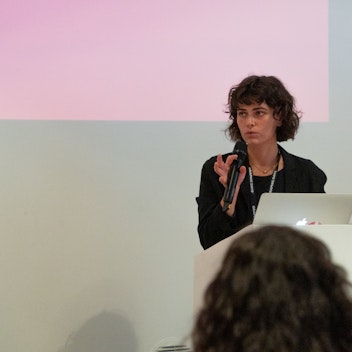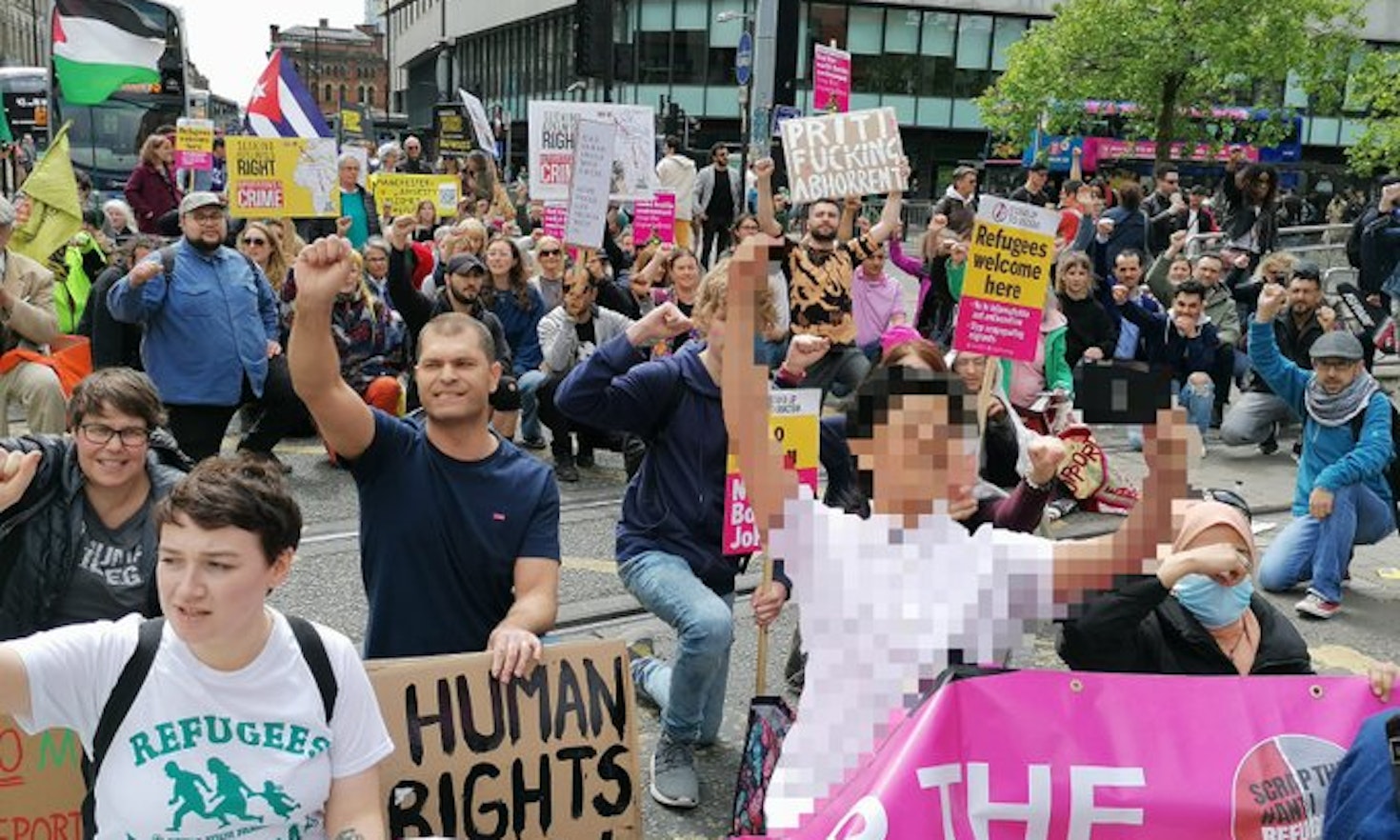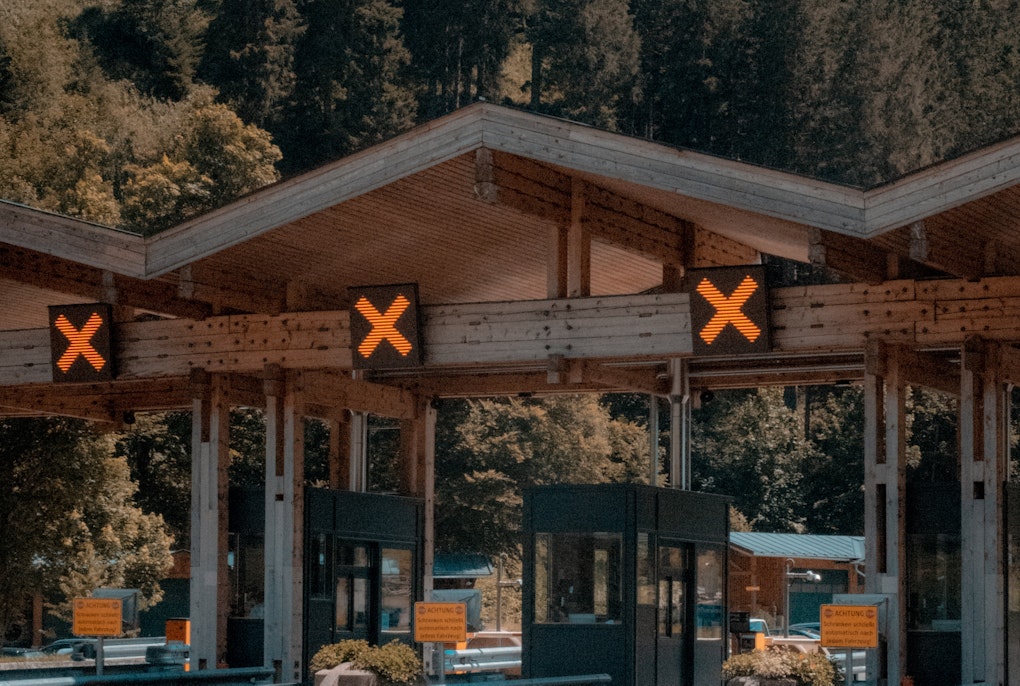
Dolomìa: a digital platform for migrant associations in South Tyrol




Recent months have seen a new phase of anti-immigrant policymaking in the UK, characterised by a shift in deportations away from predominantly targeting foreign nationals with a criminal record to targeting refugees regardless of whether they committed a crime or not. UK government rhetoric on immigration, whilst having peddled xenophobia for at least a decade, now focuses distinctly on criminalising refugees who arrived via unregulated routes and the Home secretary famously threatened to push back migrant boats into the English channel using military force.
The first half of 2022 also saw a renewed upsurge in deportation raids after the pandemic, and, on 13 June, the first (unsuccessfully) attempted deportation flight to Rwanda as part of a new £120M refugee offshoring deal the UK had struck earlier this year with the Rwandan government which agreed to take tens of thousands of unwanted refugees from the UK.
The government’s Rwanda plan was strongly denounced by politicians of opposition parties, religious leaders and numerous NGOs for the inhumanity of separating families, concerns over a lack of opportunities for deportees to have their cases heard, concerns for their mental health and their safety in Rwanda, and the harshness of detention procedures. Even HRH Prince Charles, who, as a member of the Royal family has traditionally taken a neutral, non-political stance towards government decisions, called the government’s new Rwanda plan appalling. HRH’s choice to comment should not come as a surprise, given that this policy is not simply a routine government decision which falls neatly into the realm of politics – it is a serious human rights matter and, for many of those threatened by removal, a matter of life and death. The inhumanity and possible unlawfulness of the UK’s refugee offshoring scheme was also criticised by the UNHCR. But despite widespread opposition, Johnson’s government persists in bulldozing their scheme through, just as it bulldozed through a new crime, policing and borders bill which criminalises irregular border crossing as well as peaceful protests.
The current anti-immigration regime is a continuation of the UK’s hostile environment, a policy designed to deter immigrants, particularly those from poorer communities and refugees, from coming to the UK. The hostile environment was introduced a decade ago, in 2012 – four years before the Brexit referendum - by the then home secretary Theresa May under a Conservative - Liberal Democrat coalition government. Its purpose was, at first, to help the Cameron government win general elections by peddling to xenophobic sentiment among voters. It has since, in the wake of the Brexit referendum, slowly escalated into a policy of intimidation, victimization, and deportations, famously leading to the Windrush scandal of institutional failure and racism, i.e. the wrongful deportation of at least 83 citizens from former colonies – particularly Caribbean countries.
The suffering of refugees whose lives were uprooted, who were thrown into detention prisons, treated like criminals without having committed a crime, is a matter of public record. Several detained refugees have spoken of their experiences to the British public, have said that deportation will put their lives at risk, some expressed suicidal feelings. There have been several reports of refugees pushed to the ground, manhandled, put in shackles and handcuffed during transfer. Even if innocent people had not been handcuffed, a system that deports fellow human beings to a country they have no ties to and do not feel safe in is cruel. Academic research has defined state violence in the British asylum system as encompassing various forms of active control and chicanery, as well as more passive forms of system failure such as failing to protect refugees from harm.
The government’s Rwanda offshoring policy inflicts harm on refugees actively by victimising those who arrived via unregulated routes and by passively failing to protect them. The UK’s current immigration regime thus amounts to state violence against one of the most vulnerable groups on the planet – those seeking refuge from wars, destruction and violence. What is new about the current phase, compared to previous decades of British immigration policy, is the explicit targeting and criminalising of refugees and the blatant colonialism in the principle of offshoring and in the choice of the offshoring destination. The Rwanda plan fits neatly into the British colonial history of empire sending all manner of people the state has deemed unwanted to far away countries, and secondly in that it is once again people of colour who are the most affected by the policy. The vast majority of deportees the UK Home Office holds data on have traditionally been people of colour, mostly from Afghanistan, Iran, Irak, Syria and Albania. According to the Home Office the majority of recent arrivals in small boats were Afghan (55%), Iranian (16%) and Iraqi (15%) nationals. The deportation destinations have been predominantly countries with majority non-white populations and with links to a colonial past.
The UK’s Rwanda plan was unimaginatively copied from Australia’s long established policy of offshoring unwanted migrants. The Australian migrant offshoring scheme, apart from being inhumane, has also proven to be a money drain. It is estimated to cost the taxpayer a $ 3.4m per year. The evidence so far strongly suggest that the UK’s refugee detention offshoring plans will fare no better.
Across the country, civil society is rising up against the blatant brutality and racism of the Rwanda detention offshoring plan. On 11 June 2022 hundreds of UK citizens took to the streets of London and stopped a deportation raid by the UK Home Office in the borough of Peckham. An “immigration enforcement” van had turned up in the neighbourhood to arrest a man for deportation. A local Labour councillor, who witnessed the event, raised the alarm on Twitter, and within minutes the streets were full of people blocking the van and shouting “Let him go”. The man was released as a result. One month earlier, three other deportation raids by the UK Home Office were stopped by the public in a similar manner, on the 5 May in Edinburgh, 12 May in Glasgow and 15 May in the London borough of Dalston.
In all four cases, the immigration enforcement agents ended up letting the arrested individuals go as a result of the civic resistance to the raids. The events were followed, on the 12 and 18 June, by two weekends of mass protests in Manchester, Bristol, Glasgow and London where thousands took to the streets against the government’s Rwanda plan. The protest marches saw attendees from a broad spectrum across ages, economic and ethnic backgrounds. The protests have so far fallen on deaf ears in the UK government. However, a dramatic last minute ruling by the EHRC in addition to legal challenges through the lawyers of refugees (more often than not working pro bono) have successfully prevented the first Rwanda flight from departing. The grounded flight has cost the taxpayer £12M. According to the National Audit Office, it costs approximately £560 to house a refugee for one month, so 74 refugees could have been housed for a year for the money the UK government has wasted on a deportation flight that never took off.
The future is uncertain. The British prime minister has announced that the Rwanda plan will go ahead. At the time of writing, NGOs have received reports of a renewed wave of deportation raids with dozens of people having been detained this week alone. The policy is facing ongoing legal challenges with a court hearing scheduled for July. The protests and legal challenges so far have been successful. In the presence of a structurally violent immigration system that threats refugees as lesser human beings, continuing civic resistance and legal challenges are morally necessary. Another world is possible.

This content is licensed under a Creative Commons Attribution 4.0 International license.





 Verena Wisthaler
Verena Wisthaler
 Giorgia Bulli
Giorgia Bulli